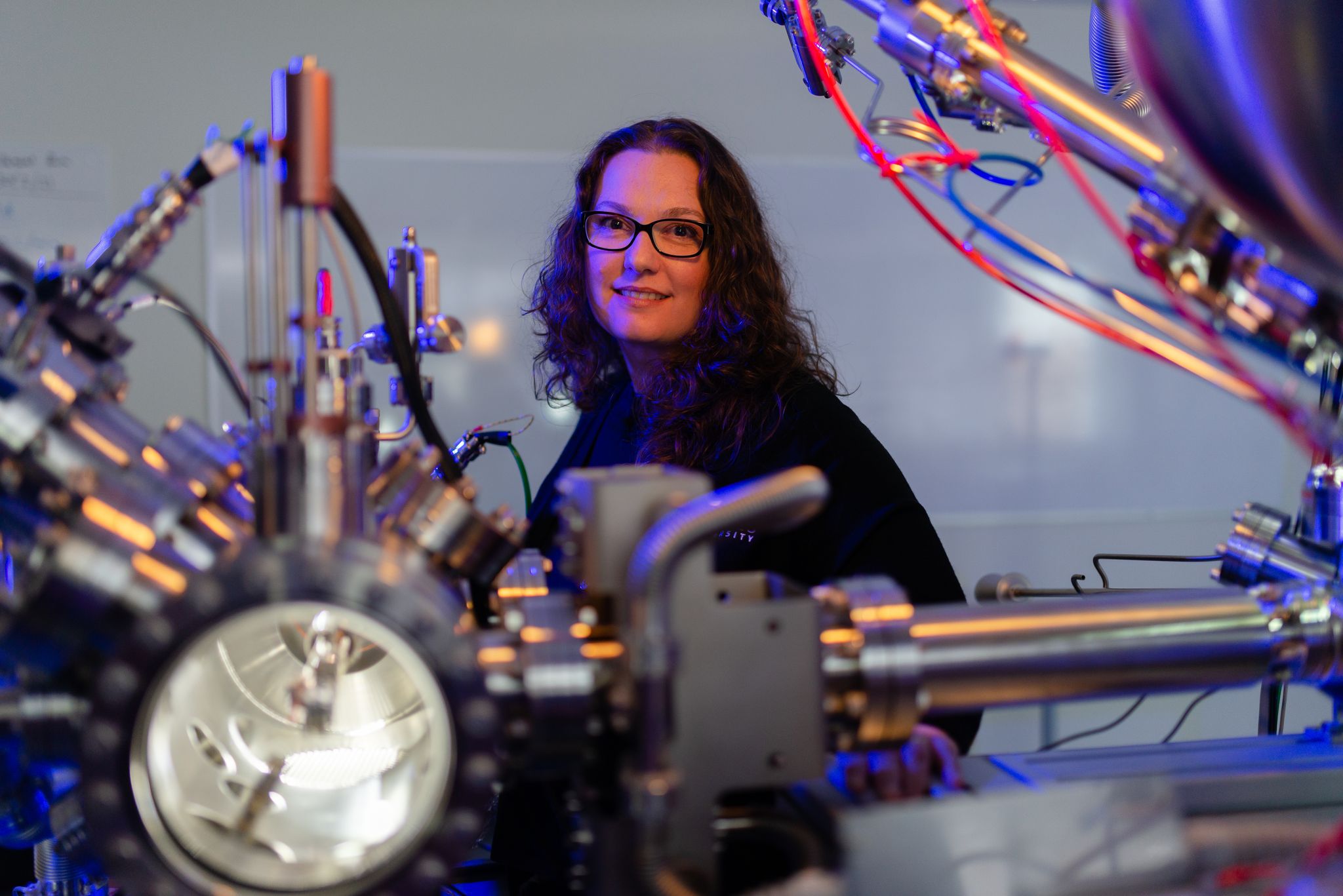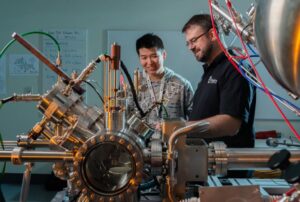
Flinders University’s leading scientific research facilities are celebrating success in the latest round of funding under the National Collaborative Research Infrastructure Strategy (NCRIS).
Flinders Microscopy and Microanalysis (FMMA) and the Flinders SA node of the Australian National Fabrication Facility (ANFF) have together been awarded more than $4.6 million in Stage 1 NCRIS funding, to cover their operating costs for the next five years.
 Professor Sarah Harmer, director of the Flinders node of Microscopy Australia, says the $2.4m joint-funding will “ensure our continued support for FMMA users of our flagship photoemission electron microscope (NanoESCA III or ‘PEEM’), atomic force microscopes and Raman instruments”.
Professor Sarah Harmer, director of the Flinders node of Microscopy Australia, says the $2.4m joint-funding will “ensure our continued support for FMMA users of our flagship photoemission electron microscope (NanoESCA III or ‘PEEM’), atomic force microscopes and Raman instruments”.
The combination of Federal, State and matching University funding was announced by the Albanese and Malinauskas Governments last month.
Stage 1 funding was allocated to six NCRIS-supported projects at 12 facilities in South Australia as part of more than $64 million awarded nationally to enable Australian research institutes and businesses to translate research into innovative products and services for broad community benefit.
The SA node of the ANFF is co-located at Flinders University and UniSA and offers access to more than $10m in equipment and technical support for the design, fabrication and testing of micro-scale devices.
Stage 2 NCRIS funding will be announced in 2024.
Flinders University’s College of Science and Engineering has also been awarded two major Australian Research Council (ARC) Linkage Infrastructure, Equipment and Facilities (LIEF) grants.
The $1.15m LIEF project – led by Dr Darryl Jones, Professor Harmer, Professor Mats Andersson and Professor Gunther Andersson – will add a femtosecond high-harmonic generation beamline to the PEEM at FMMA to create Australia’s first time-resolved momentum microscope.
A $900,000 ARC LIEF Stage 2 grant to a research team including Associate Professor Martin Johnston, Associate Professor Anton Blencowe (UniSA), Professor Michelle Coote, Professor Bulone, Dr Witold Bloch and Associate Professor Michael Perkins will revitalise the Nuclear Magnetic Resonance facilities in South Australia.
More ARC grant news is available here: ‘Discovery grants aim to make a real-world difference‘

